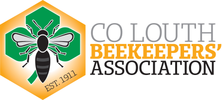Are you interested in beekeeping?
Online information
For information on our beginners course, see here.
We strongly advise you to focus on videos and other information in the UK and Ireland since these reflect the realities of beekeeping here. While many of the American videos have interesting content, please be aware that they have different bees, different climate, different weather, different plants, different hives, different terminology, different laws, etc.
FIBKA have a good document on Beginning with Bees - well worth a read. Also, FIBKA's preliminary exam is definitely something all beginners should take. It's not difficult, but it emphasises the basics needed to manage a beehive. Have a look at the syllabus here - click on the top "Preliminary" entry. The past exam papers are useful for understanding what's asked in the written exam, but you need your FIBKA ID to access them.
An excellent source of information is the Norfolk Honey Company - Stuart Spinks' videos are accurate and helpful. If you find them useful, don't be afraid to contribute to his Patreon page. Many of his videos are grouped in series, the most relevant for beginners being:
The most comprehensive reference website for anything related to honey bees is, without question, Dave Cushman's encyclopedic web site - possibly the most information about bees available in one spot on the internet. It's not a modern web site, but it's dense and requires a lot of reading, as you might expect from a reference site.
Another website with loads of information is Beespoke.info, an Irish site that's easier to read than Dave Cushman's although it's not as comprehensive.
If you're wondering what plants your bees are visiting, you can use this Pollen chart from Sheffield Beekeepers.
For those who wonder about the various stages of larvae, our friends in La Familia de la Apicultura have posted a great photo that shows a wide range of ages together - obviously a very helpful queen has laid up a frame from the top left (oldest larvae) to the bottom right (the youngest eggs):
We strongly advise you to focus on videos and other information in the UK and Ireland since these reflect the realities of beekeeping here. While many of the American videos have interesting content, please be aware that they have different bees, different climate, different weather, different plants, different hives, different terminology, different laws, etc.
FIBKA have a good document on Beginning with Bees - well worth a read. Also, FIBKA's preliminary exam is definitely something all beginners should take. It's not difficult, but it emphasises the basics needed to manage a beehive. Have a look at the syllabus here - click on the top "Preliminary" entry. The past exam papers are useful for understanding what's asked in the written exam, but you need your FIBKA ID to access them.
An excellent source of information is the Norfolk Honey Company - Stuart Spinks' videos are accurate and helpful. If you find them useful, don't be afraid to contribute to his Patreon page. Many of his videos are grouped in series, the most relevant for beginners being:
- Getting started (and again here)
- Swarm control and swarms
- Hygeine and disease control
- Creaming rapeseed honey - the Dyce Method
- And loads more
The most comprehensive reference website for anything related to honey bees is, without question, Dave Cushman's encyclopedic web site - possibly the most information about bees available in one spot on the internet. It's not a modern web site, but it's dense and requires a lot of reading, as you might expect from a reference site.
Another website with loads of information is Beespoke.info, an Irish site that's easier to read than Dave Cushman's although it's not as comprehensive.
If you're wondering what plants your bees are visiting, you can use this Pollen chart from Sheffield Beekeepers.
For those who wonder about the various stages of larvae, our friends in La Familia de la Apicultura have posted a great photo that shows a wide range of ages together - obviously a very helpful queen has laid up a frame from the top left (oldest larvae) to the bottom right (the youngest eggs):
If you have bees in a nucleus colony (nuc), our own Jim Carroll of Irish Bee Supplies has produced an excellent video explaining how to move them into a full-size hive:
|
|
|
|

